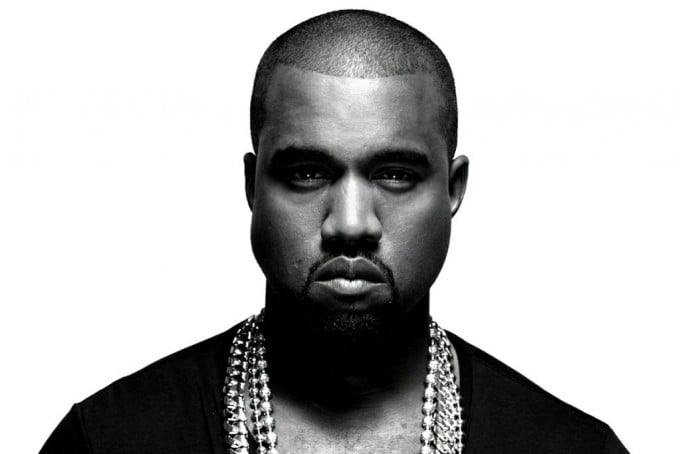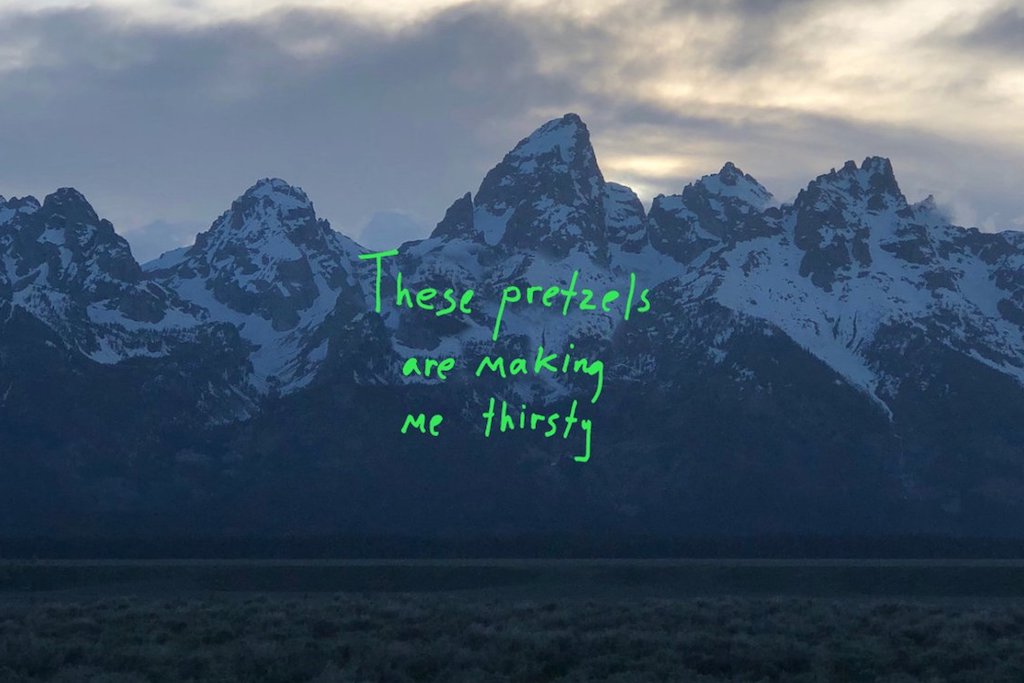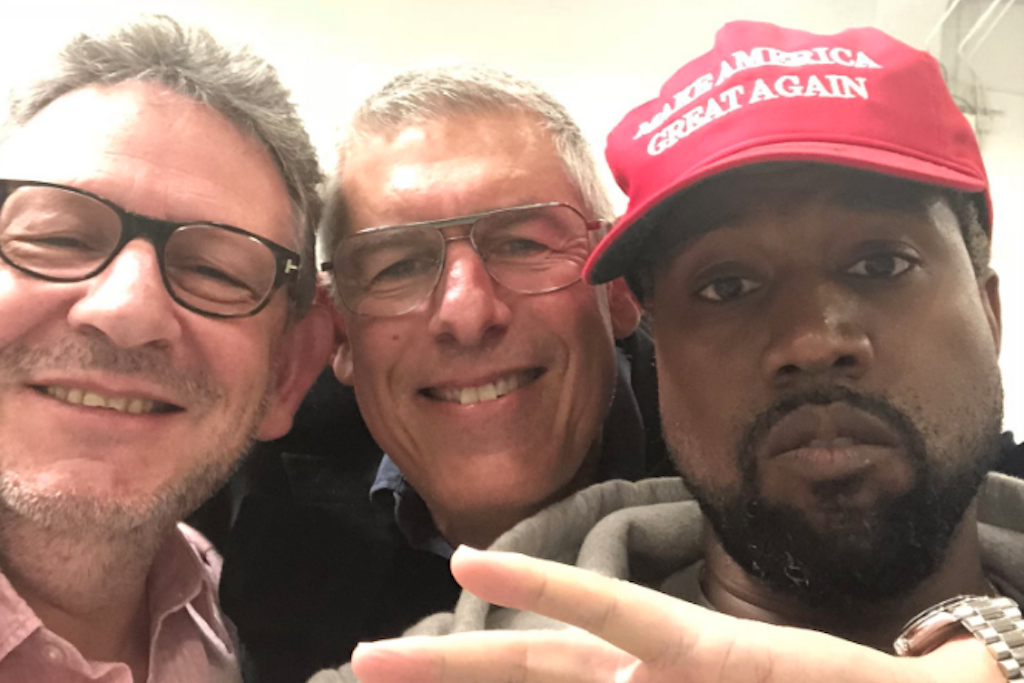The Biggest Takeaways From Kanye West’s Candid ‘New York Times’ Interview
According to Kanye, cancelling is cancelled.

Kanye West has opened up about his frame of mind over the last few months — including his comments that ‘slavery was a choice’ — in a lengthy, candid interview with the New York Times.
For two days shortly after Wests’ launch of eight album Ye earlier this month in Wyoming, Times writer Jon Caramanica followed the rapper. The resulting interview dives deep into West’s creative process, his mental health, marriage and his tumultuous public presence of late, including his repeated support for Donald Trump.
It’s a long read, one well worth the word count — but in case you don’t have the time, here are the main takeaways.
#1. Ye’s Lyrics Were Written In About A Week
In the past month, West has released five albums — Ye, his collaboration with Kid Cudi, Kids See Ghosts, and albums from Nas, Teyana Taylor and Pusha-T.
Listening to Ye, it’s clear the album came together quickly. Irregardless of where you land on its quality, it’s clear the songs reference events from May, and we know the album’s cover was shot on the way to its release party.
It’s not exactly a surprise, then, that Carmanica mentions West hadn’t written any lyrics eight days out from the album’s release. Apparently West wasn’t pressed — he went to see Deadpool 2 twice.
We also learn about West’s currently approach to songwriting, including how he routinely handpicks collaborators based off hearing lyrics or flows that sound like something he ‘would have thought of’.
#2. When Kanye Said ‘Slavery Was A Choice’, He Didn’t Actually Mean It
In May, West appeared on TMZ Live, giving a widely-criticised interview in which he called President Trump “my boy” and appeared to call slavery a choice.
Given the chance to clarify the statement by Caramanica, West defends himself, implying that he was discussing the difficulties of double-consciousness, when an oppressed group begins to see themselves through the eyes of their oppressor.
“I said the idea of sitting in something for 400 years sounds — sounds — like a choice to me, I never said it’s a choice. I never said slavery itself — like being shackled in chains — was a choice,” he said. “That’s why I went from slave to 400 years to mental prison to this and that. If you look at the clip you see the way my mind works.”
Listening back, it does appear that’s where he was going, though it’s not exactly clear. Nethertheless, West declines to ‘reframe’ the comments. “I wouldn’t frame a one-liner or a headline,” he said. “It’s literally like I feel like I’m in court having to justify a robbery that I didn’t actually commit, where I’m having to somehow reframe something that I never said.”
#3. According To Kanye, Cancelling Is Cancelled
After being supposedly ‘cancelled’ himself in wake of his continued support of President Trump, West expresses his own views on the limits of cancelling culture, noting his own continued success.
“Half the people that are listening to the album are supposed to not listen to the album right now,” he said. “I’m cancelled. I’m cancelled because I didn’t cancel Trump.”
West ties this back to his mother, Donda West, who died in 2007 after complications related to cosmetic surgery. Although West eventually decided against it, Ye was originally going to be called ‘Love Everyone’, featuring a photo of his mother’s disgraced surgeon Jan Adams on the cover as an act of forgiveness.
“I wanted to make my album cover the doctor that performed my mom’s last surgery. I think that’s pretty big on the cancel-culture territory,” he said. “I’m starting saying, “I’m not canceling him,” ’cause the world canceled him. I believe in the court of public opinion that that thought has to change.”
For West, it’s clear ‘cancelling’ is conflated with personal acts of anger and disappointment, rather than an act of economic and cultural disavowal. He is right to point out its limits — his own sustained success is proof that ‘cancelling’ isn’t as simple as saying the word — but it side-steps the root of the reason why people are hurt by his politics.
#4. Kanye Thinks Artists Should Be Irresponsible
Perhaps the most salient point in the interview is the way in which West defends his support of Trump, repeating a line we’ve heard repeatedly — it’s not necessarily the President’s policies that he supports, but the ‘shake-up’ he represents.
When asked about the expectations on him as a public figure, West talks about how he felt he “had” to support Hilary Clinton in the 2016 election, describing it as an “arranged marriage”. West frames his 2016 embrace of Donald Trump as his way out.
“I believe that I’m actually a better father because I got my [expletive] voice back, I’m a better artist because I got my voice back,” he said. “I was living inside of some universe that was created by the mob-thought, and I had lost who I was, so that’s when I was in the sunken place. You look in my eyes right now — you see no sunken place.”
It’s in line with later comments about remaining wilfully uninformed as a way to be free — West has previously tweeted about his reluctance to ‘read books’, and he doubles-down on the sentiment. When asked about how he got out of the sunken place, West says it was a process ‘un-information’, deprogramming himself from medication and facts.
“[I started] just standing up and saying what [I] feel, and not even doing a lot of research on it,” he says. “Having a political opinion that’s overly informed, it’s like knowing how to dress, as opposed to being a child — “I like this.” I hear Trump talk and I’m like, I like the way it sounds, knowing that there’s people who like me that don’t like the way it sounds.”
He later extends the point, saying that “we need to be able to be in situations where you can be irresponsible. That’s one of the great privileges of an artist. An artist should be irresponsible in a way — a 3-year-old.”
In a time in which popstars are expected to be more than their music, the comment is a rejection of how we hold musicians increasingly accountable to not only their actions, but their politics. But then again, West has always defied and challenged expectations, from 808s and Heartbreaks to the 2009 VMAS and, further back, the sentiment behind debut College Dropout.
At least we’ll always have his happy-go-lucky appearance on Family Feud.
—
Jared Richards is a Staff Writer for Junkee, and co-host of Sleepless In Sydney on FBi Radio. Find him on Twitter.

